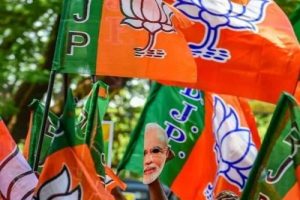My brother Ashis was to receive an international award and I made a quick hop from Iceland to arrive for the ceremony in Germany.
Bochum is one of the larger universities in northern Germany, located in a curious region that combines the pastoral with the industrial. That is where a major foundation had decided to honour him for his lifelong work on creativity, culture and mass violence.
Many years ago, I had gone to Essen on the invitation of a mining company. I saw a highly industrialized area that bore the oversize footprint of the Krupp empire. Krupp was Europe’s largest company and for 400 years Germany’s main arms maker, producing tanks, ships, guns and cannons. Naturally, during the Second World War it became the top target of allied bombers. I saw huge destruction and massive reconstruction and came away with the impression of a mainly industrial Rhineland.
Now I was seeing the other side of the region, the softer, bucolic side.
An hour’s run from Dusseldorf, I was ensconced in a charming hotel. Away from the main road, and a few steps from a golf course, you walk up to a modern building that looks from afar a bit like a chalet. The view from my room consisted entirely of oak, fir and pine; I could go for a shower leaving my trousers on the bed.
A cool but bright day. I walked down the bluff where the hotel is located. A bricklayer and a mason, working on an annex of the hotel, sat sipping beer during lunch break. They politely took off their cap and waved. A young woman pushing a baby in a pram and crooning passed by and nodded.
I reached a side street and walked on. A caressing breeze, a long series of tall pines. A real pleasure to walk on the cleanest, smoothest sidewalk I have ever seen.
“Are you tired? Would you care to join us for dinner?” asked my host from the foundation.
I was tired after the briefest nap on the plane, but I was also hungry. I loved the salmon and salad, along with the suave Riesling.
A brief drizzle in the morning, a cooler air.
“Would you like to join us for a visit to an industrial museum?”
My past decided: I can’t skip a museum that has to do with mines, for I spent time in coal and metal mines in India. The museum was an ingenious one, housed in the gigantic coal washing plant that served the major factories of the area. The huge machines remain, and the three floors have been imaginatively converted into three linked exhibits: Memory, that depicts the ancient land; History, that tells the story of its industrialization; and Present, that offers a fascinating view of its fast-changing face from war production to peacetime industry. I kept wondering if defunct factories in India, like the one I worked in, couldn’t be converted into a museum this fascinating.
The event in the evening was well attended. A large hall, many dignitaries and scholars, and a hearteningly large group of younger people. I do not endure long speeches well; the loss of time is seldom made up by a measurable gain of wisdom. There were three of them, telling us of the foundation, its purpose and activities, and the larger goals of the area’s universities. Then, somebody narrated my brother’s life work in the social sciences, his huge studies of media, violence and societies in transition.
Finally, came the climactic moment when Ashis received the Hans Kilian Award and started his talk on the 1947 killing of a million Indians and displacement of fourteen million more. It was a telling speech, but my mind wandered. I was thinking of the nine-year-old standing next to me at a third-floor window, while arsonists went about setting fire to our house. I was thinking of the boy walking with me to school and complaining that I walked too fast and missed the fun things on a Kolkata street. I was remembering an adolescent telling anecdotes to adoring, laughing friends in our favorite terrace. Eating in our aunt’s small kitchen and fancifully christening the egg casserole he liked. Hugging my disconsolate mother who missed his long absence in a faraway university. Telling me of his dreams to study scientists in a tiny Delhi apartment. His dramatic reappearance in my parents’ home with his simpering new bride. His happy, excited entry in a cherished research center. His long days and nights at work while I chatted and drank tea with his wife. Listening to Vilayet’s sitar together in his cozy but cold home in old Delhi. His endless writing and furious espousal of victims’ causes. The erupting hate of fanatics and our fear for his safety. His New Delhi home, the paintings on his walls that he loves, the torrential music that he adores, the overflowing books and research papers that fill every room. Our spirited walks on Delhi’s uneven streets. And our talk, unending talk, late at night, early morning, over tea, on rain-swept days and chilly nights.
Ashis finished, talking of the elderly Sikh who slit the throats of his daughters before they could be raped by invaders, and the thin ray of hope in the action of the gutsy few who tried to save the helpless many.
Time for the celebratory dinner and a joyous cocktail. Our last brief hour together. A plane waits to take him 4,000 miles east. A very separate one flies me 4,000 miles west into an alien sunset.
The writer is a Washington-based international development advisor and had worked with the World Bank. He can be reached at mnandy@gmail.com)












